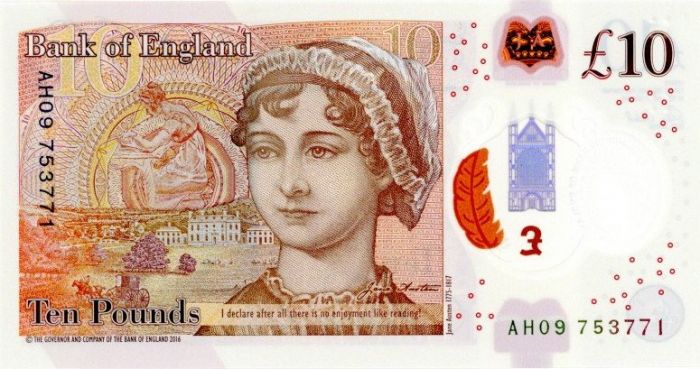Great Britain - P-New - 10 Pounds - Foreign Paper Money
Inv# FM2578 Foreign Paper Money
10 Pounds, P-New. Polymer and hologram.
Sterling (ISO code GBP, abbreviation stg) is the official currency of the United Kingdom and its associated territories. The pound (sign: £) is the main unit of sterling, and may be referred to by the compound noun pound sterling or the term British pound, although neither of these are official names of the currency itself. One pound is subdivided into 100 pence (singular: "penny", abbreviated: "p").
Sterling is the world's oldest currency that is still in use and that has been in continuous use since its inception. It is currently the fourth most-traded currency in the foreign exchange market, after the United States dollar, the euro, and the Japanese yen. Together with those three currencies and Renminbi, it forms the basket of currencies which calculate the value of IMF special drawing rights. As of mid-2021, sterling is also the fourth most-held reserve currency in global reserves. All these currencies are government-issued fiat currencies.
Sterling is also the currency in these territories: Jersey, Guernsey, the Isle of Man, Gibraltar, South Georgia and the South Sandwich Islands, the British Antarctic Territory, and Tristan da Cunha. Local issues of the pound are produced in these territories which are valued at par with the British pound: the Guernsey pound, Jersey pound, Manx pound, Gibraltar pound, Falkland Islands pound, and the Saint Helena pound. Other territories have transitioned to the U.S. dollar, e.g. Bermuda in 1970.
The Bank of England is the central bank for sterling, issuing its own banknotes, and regulating issuance of banknotes by private banks in Scotland and Northern Ireland. Sterling banknotes issued by other jurisdictions are not regulated by the Bank of England; their governments guarantee convertibility at par. Historically, sterling was also used to varying degrees by the colonies and territories of the British Empire.










Ebay ID: labarre_galleries